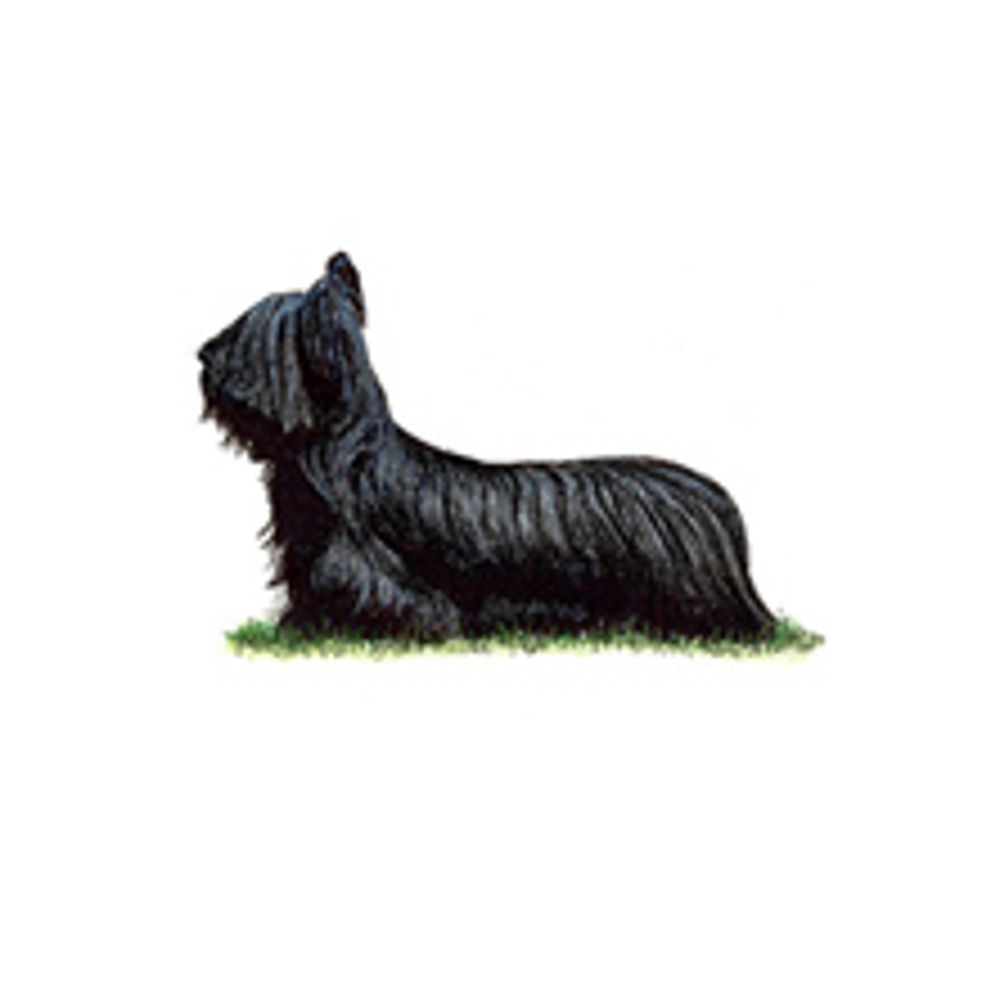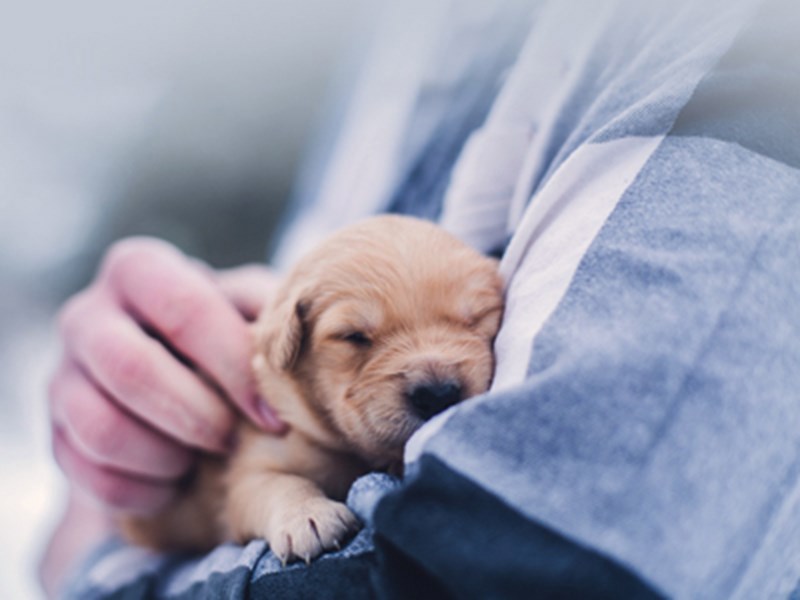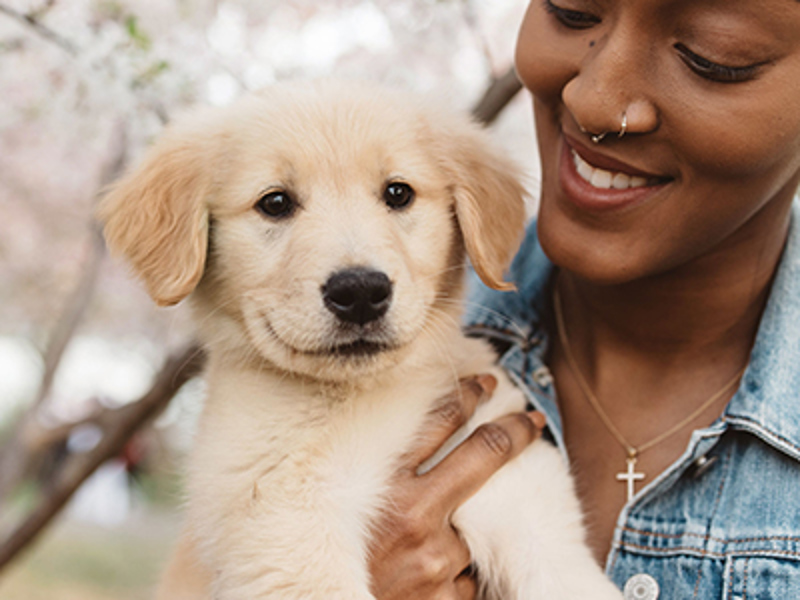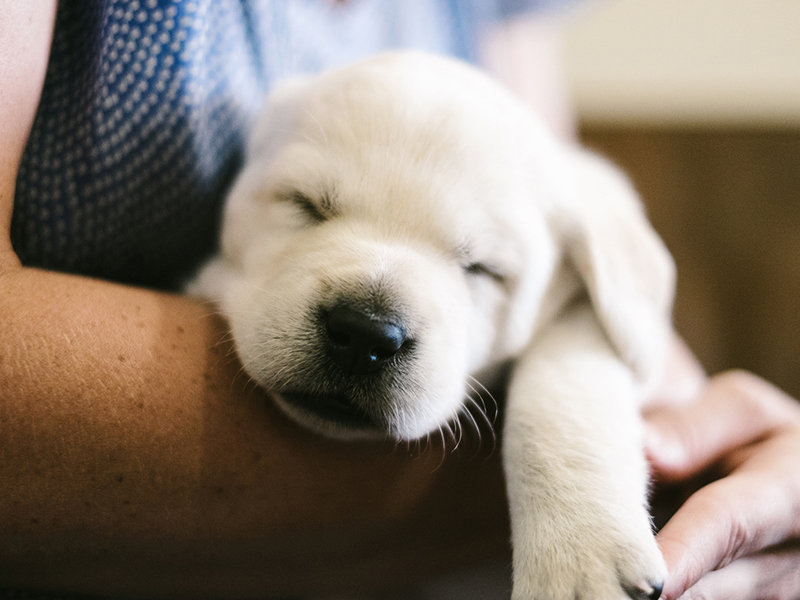
Skye Terrier
Breed characteristics
- Size
- Small-Medium
- Exercise
- Up to 1 hour per day
- Size of home
- Small house
- Grooming
- More than once a week
- Coat length
- Long
- Sheds
- Yes
- Lifespan
- Over 12 years
- Vulnerable native breed
- Yes
- Town or country
- Either
- Size of garden
- Small/ medium garden
About this breed
One of the original terriers of the Hebrides, the Skye was described by Dr John Caius, Court physician to Elizabeth I in his book “of English Dogges” in 1570. The Skye plays a part in the development in all the terrier breeds of Scotland.
He was used to hunt fox and badger so needed to be game and fearless. Despite these qualities in the field, it is the most loyal and devoted of companions – a quality made legendary in the story of Greyfriars Bobby, a dog owned by a Scottish shepherd. When his master died Bobby returned daily to the grave for 14 years and was fed by local residents. When Bobby died in 1872 a monument was erected in Greyfriars churchyard in Edinburgh. Queen Victoria acquired a Skye in 1842 and this helped to widen popularity of the breed.
The modern Skye is larger and longer and more heavily coated than its ancestors.
Images for this breed
The Terrier breed group
Dogs originally bred and used for hunting vermin. 'Terrier' comes from the Latin word Terra, meaning earth. This hardy collection of dogs were selectively bred to be extremely brave and tough, and to pursue fox, badger, rat and otter (to name but a few) above and below ground. Dogs of terrier type have been known here since ancient times, and as early as the Middle Ages, these game breeds were portrayed by writers and painters.
Colour Watch
Category 0: Breeds with no NBS colour registration options.
Read more about Colour Watch.
Breed Standard colours
Breed standard colour means that the colour is accepted within the breed standard and is a traditional and well-known colour in this breed.
Breed standard colours in this breed include:
- Black
- Cream
- Cream Black Points
- Dark Grey
- Fawn
- Grey
- Light Grey
- Silver
- Silver Black Points
Other colour/s
'Other' means you consider your puppy to be a colour not currently known within the breed and one that does not appear on either the breed standard or non-breed standard list. In this instance you would be directed through our registrations process to contact a breed club and/or council to support you on identifying and correctly listing the new colour.
Non-breed-standard colours
Non-breed-standard colour means that the colour is not accepted within the breed standard and whilst some dogs within the breed may be this colour it is advised to only select a dog that fits within the breed standards for all points.
Colour is only one consideration when picking a breed or individual dog, health and temperament should always be a priority over colour.
Health
Whether you're considering buying a Skye Terrier puppy or breeding from your dog, it's important to understand the health issues that may affect the breed and how they can be managed or avoided.
Pre-breeding Health Screening
Good Practice schemes and tests
We strongly recommend that breeders, at a minimum, conduct these tests before breeding, as evidence indicates these conditions are a significant concern in the breed.
- Prioritising genetic diversity
Find out about a particular dog's results
Please visit our Health Test Results Finder to discover the DNA or screening scheme test results for any dog on The Kennel Club's Breed or Activity Register.
You can also view the inbreeding coefficient calculation for a puppy's parents, or for a dog you're thinking of breeding from.
DNA Testing Services
We don’t currently offer a breed-specific DNA testing package for this breed, but we have a wide selection of individual DNA tests available. To find out more and view our full selection, click here
Breed Health & Conservation Plan
The Breed Health and Conservation Plans
Our breed health and conservations plans (BHCPs) use evidence and data to help us understand the health issues found in each pedigree dog breed. These plans help breeders and owners identify health and welfare problems and use information, health tests and health schemes to avoid passing on those problems to future puppies. They also support and provide breeders with tools and specialist expertise to help manage genetic diversity, understand the impacts of close breeding, and find the best ways to preserve the population of their breed.
Working together for the breed
We’ve worked with breed clubs and breed representatives to gather all available evidence to help us determine the priority concerns for the breed and decide how we can work together to manage and reduce these problems.
The full evidence base is available at the discretion of the breed clubs, however if you would like to seek access to the full report, please contact our health team.
More about health
Have any questions about health in your breed?
If you have any concerns about a particular health condition in your breed then you may wish to speak to your vet or you could contact your breed health co-ordinator.
Breed health co-ordinators are individuals working on behalf of breed clubs and councils who are advocates for the health and welfare of their chosen breed. They acts as a spokesperson on matters of health and will collaborate with The Kennel Club on any health concerns the breed may have.
To contact your breed health co-ordinator please email:
Sarah Downes
Breed watch
Category 1
Currently no points of concern specific to this breed have been identified for special attention by judges, other than those covered routinely by The Kennel Club's breed standard.
Breeding restrictions
There are a number of The Kennel Club's rules and regulations that may prevent a litter from being registered, find out about our general and breed specific breeding restrictions below.
More about breeding
There are not currently any additional breed specific restrictions in place for this breed.
Looking for a puppy?
Looking for a Skye Terrier? Explore our list of puppies and rescue dogs for sale near you.
More information

Need to find out more about a breed?
Use our Find a Club service where you can locate breed clubs that can offer support and advice.

Use our Find a Puppy service
The Kennel Club's Find a Puppy service provides contact details for breeders who have puppies available. Let's help you find your new best friend.

Get the best lifetime pet insurance
At Kennel Club Pet Insurance, we want you to focus on getting the best possible treatment for your dog without worrying about the cost.
